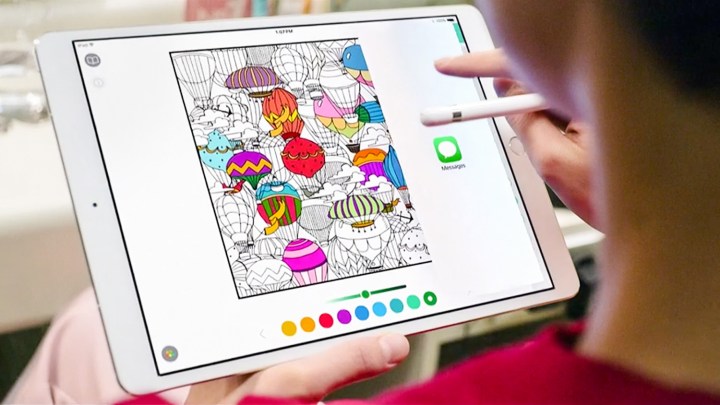
Apple debuted the Apple Pencil in 2015 and it has been a staple of the iPad Pro ever since. The company has never released one that is compatible with the iPhone, however. Apple’s reluctance to create an iPhone-compatible stylus likely has to do with Steve Jobs’ distaste for styluses. The Apple founder was known for his hatred of styluses; Jobs once reportedly said “God gave us 10 styluses. Let’s not invent another.”
While Jobs may have had an aversion to them, it’s clear that other tech companies and, more importantly, tech consumers, do not. The disaster that was the exploding Note 7 aside, Samsung’s Galaxy Note series has consistently sold well and styluses, in general, have proven popular with many people, especially artists.
The Samsung Galaxy Note 8’s stylus was made in a partnership with Wacom, a company well-known for its stylus and tablets geared towards artists. While that phablet is more business-oriented, our Note 8 review revealed that the device still worked well for drawing.
We don’t know who will make Apple’s new stylus, but the Korea Herald’s reports indicate that the stylus-compatible version of the iPhone will have some major differences from Samsung’s line of Note phones. The Note 8’s stylus was made using electromagnetic resonance, which requires additional panels under the phone’s screen. Apple’s stylus will reportedly be a supercapacitor stylus, which is less expensive to make.
“A supercapacitor type is cheaper to make compared to the EMR stylus. It also offers a more pen-like feel,” one of the Herald’s sources said.
Another obstacle facing Apple is that their A-series line of mobile hardware will likely need an upgrade to support handwriting and drawing features on the smartphone. This was reportedly a problem for the iPhone X, where Apple was forced to reduce the touch-screen’s performance in order to make up for the fact that it had to use an older chipset.


